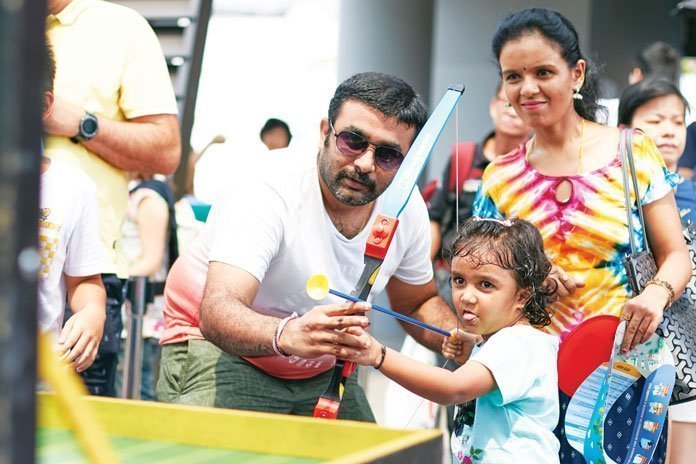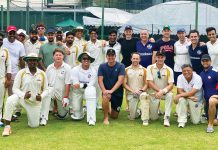
What’s the Centre for Fathering?
CFF is a non-profit organisation founded in 2000 to promote active and involved fathering in Singapore. In 2009, DADs for Life was launched to inspire and mobilise fathers to become more involved and to be a good influence on their children. In the last 24 years, we’ve equipped over 65,000 fathers through programmes in schools, prisons, religious organisations and companies.
What kind of programmes?
We engage more than 700 incarcerated fathers and their families with over 100 workshops and father-child bonding activities each year. We also run nationwide campaigns such as Celebrating Fathers, Eat With Your Family Day, Mum’s Day Out and Back to School with Dad. Our programmes and activities have reached a wider group of fathers such as fathers of marginalised families, fathers of children with special needs, and single fathers.
What challenges are fathers facing in Singapore today?
Due to traditional beliefs, fathers may view their primary role as breadwinners, and leave much of the household chores and child minding to mothers. The assumption is that the mother is the primary caregiver and the father is the helper or assistant. Societal attitudes towards a father’s role need to change to encourage fathers to become more involved. As a dad of three, I’m the first to admit that I’m not the perfect father. There are times when I don’t know what I’m doing and feel like I’m alone trying to figure things out.
Where do you start with updating these traditional beliefs?
Workplaces tend to be more accommodating and understanding towards mothers than fathers. Despite holding full-time positions in organisations, mothers are often perceived as the primary caregivers. As a result, fathers who wish to be more involved with their families may be viewed negatively by employers who hold onto traditional views of men as breadwinners. We need to encourage fathers to utilise the likes of paternity leave, as a cultural shift in the workplace is crucial.
And away from the workplace?
Childcare and housework should be a shared responsibility, jointly decided based on personal circumstances instead of what society thinks fathers and mothers should do. To move towards greater equality, we need to recognise the important role of a father as caregiver in partnership with the mother.
International Women’s Day is on 8 March. Are gender roles changing here?
Statistics certainly reflect a shift in perceived roles of men and women as well as fathers and mothers. For example, the 2021 Marriage and Parenthood (M&P) Survey showed that almost all (99%) married respondents agreed that fathers and mothers were equally important as caregivers for children. In addition, 95% agreed that both parents should share equal responsibilities at home.

How does CFF encourage this?
Our Back to School with Dad initiative is a good example. It’s an opportunity for dads to become more involved in their children’s education – a long-term commitment that tends to be taken on by mothers.
How else is CFF striving forwards?
Right now we’re working with maternity hospitals in Singapore to reach more fathers with newborns and providing them with skills to become confident caregivers.
There is also MUMs for Life…
In 2019, DADs for Life partnered with a group of mother volunteers to launch MUMs for Life. When mums are confident in their unique identity and multiple roles, they can better nurture our children and support dads in building a stronger family in an increasingly complex world.
Please share one piece of advice for fathers …
Dads, your wife and children need you. I encourage you to become the best version of a father and husband to them that you can. Just as you’d take time to upgrade your skills as a working professional, invest in upgrading your skills as a father through books, articles, videos, workshops or even being a part of a dad community like CFF. Your role as a dad is for life!
Changing gender roles statistics: population.gov.sg







